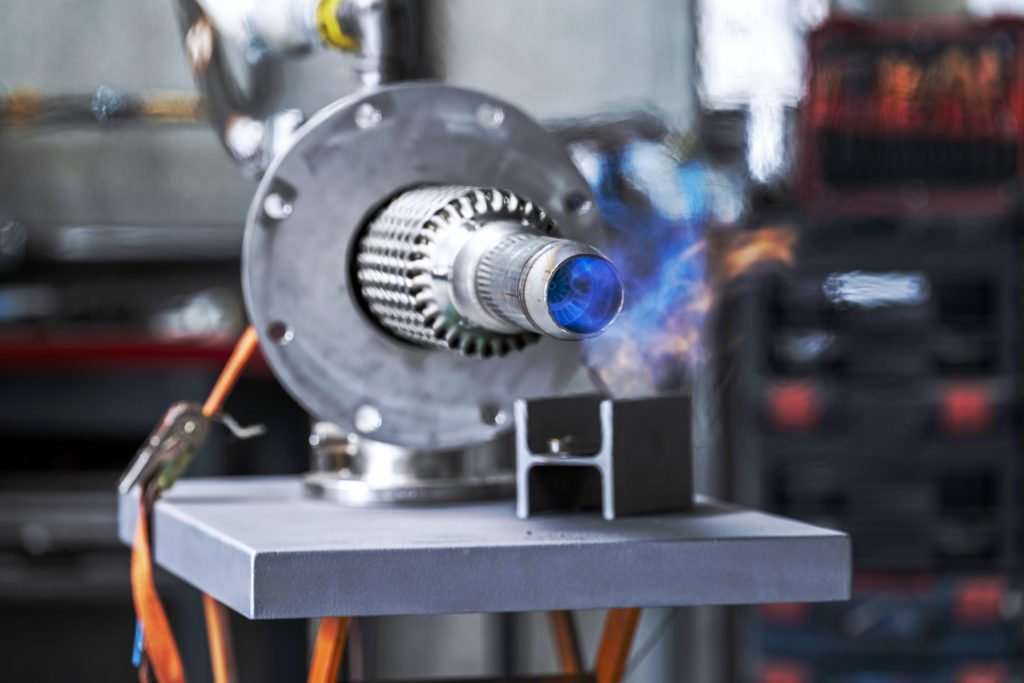23 Nov
Kueppers Solutions receives award for the “Circle of Excellence” of the German Future Prize

Jens te Kaat, Dan-Adrian Moldovan and Bernd-Henning Feller from Kueppers Solutions were officially included in the “Circle of Excellence” of the Deutscher Zukunftspreis yesterday, November 22, for the development of the iRecu dual-fuel burner. At a festive evening event, the Federal President presented them with a certificate for their award.
“Our team has been researching the iRecu for four years. The first system conversions to our dual-fuel recuperative burner have already been a great success. To have now made it into the top candidates for the German Future Prize is a great honor and an absolute team success,” the team said happily after the award ceremony in Berlin.
Fuel savings and firing with hydrogen: this is what the iRecu can do
The innovative dual-fuel mixing unit can be fired with both natural gas and hydrogen depending on demand and availability and without any additional effort. This makes the iRecu a crucial element in the gradual introduction of green hydrogen into industry and the CO₂-neutral orientation of many industrial companies. In addition to its dual-channel capability and firing with hydrogen, the iRecu also offers advantages for systems that continue to run solely on natural gas. The innovative heat exchanger also enables immediate fuel savings of between 12% and 50%. By converting to the iRecu, we make industrial heat treatment plants more energy-efficient and at the same time make them “hydrogen-ready”.
“The fact that our iRecu burner was chosen as one of the best in the German Future Prize confirms the importance and need for precisely these types of technologies to drive forward the energy transition,” explains Jens te Kaat. “We are already cooperating with a number of companies to reduce the CO₂ emissions of their plants. At the same time, the government must now work on implementing the National Hydrogen Strategy so that even more systems can be converted efficiently.”



